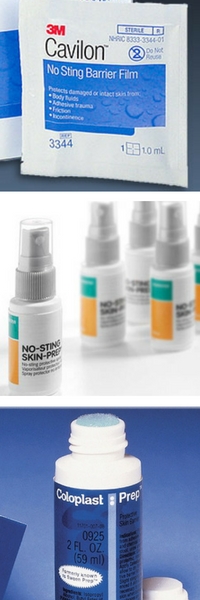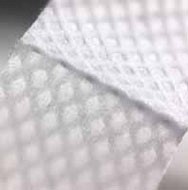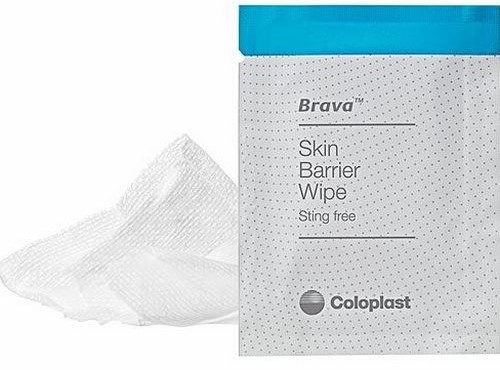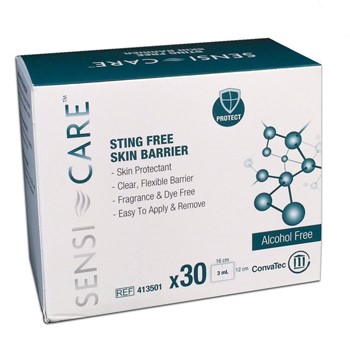https://www.exmed.net/different-types-of-ostomy-barriers
.jpg)
What is Skin Prep?
Skin prep is a liquid that when applied to the skin forms a protective film or barrier. When applied to intact skin, the protective film helps protect against friction and shear when bandages and medical tapes are removed. Skin prep can also prepare the skin for the attachment of drainage tubes, wound care bandages, external catheters, ostomy flanges and wafers, and other adhesive style bandages. Skin prep is a water-proof liquid that forms a transparent film over the skin to protect it from possible irritation while allowing you to visibly inspect the skin.
What Styles of Skin Prep Applicators Are There?
 Skin Wipes - Individually packaged wipes, generally small in size, easily fits in a pocket or purse. Controlled and more focused application of product since the liquid is contained inside the wipe and is applied only where the wipe is placed.
Skin Wipes - Individually packaged wipes, generally small in size, easily fits in a pocket or purse. Controlled and more focused application of product since the liquid is contained inside the wipe and is applied only where the wipe is placed.
Spray - A bottle that is equipped with a spray nozzle. Allows for application to a larger area because it sprays out from the nozzle onto the skin and covers a larger area at one time. This style offers less control than a wipe that only covers skin that comes in contact with the wipe.
Dauber - Also called a blotter, this type of skin prep application allows you to squeeze the bottle and release a larger amount of skin prep liquid in one spot. The dauber can also be used to cover a large area or concentrate on specific areas. Coloplast is one of the few companies that make the blotter or dauber style of skin prep applicator, which is a shame because it is really the best of both worlds. You get the control of a wipe with the targeted area coverage of a skin prep wipe.
What is Sting Free Skin Prep?
When a skin prep is labeled as "Sting Free" that means it does not have the ingredient alcohol. The absence of alcohol makes it less likely to sting or cause discomfort when applied to skin. Sting free skin prep is also considered to be gentler on sensitive skin. Alcohol can dry out skin, so using products that have alcohol can potentially cause more discomfort than using products that don't have alcohol. Before using any type of skin care product on your skin you should do a patch test. Apply the product to a small section of skin and wait three days and see how your skin reacts to that product. If you have a reaction it is better to have it be on a small area instead of around your entire stoma, catheter, or around a wound care or drainage tube site.
When Should You Use Skin Prep?
- To reduce friction from skin on skin contact, on bony areas of the body that contact areas of pressure, and between skin folds
- Areas of wetness associated with wound drainage or ostomy output
- Around drainage areas from tracheotomy tubes or feeding tubes
- When adhesive trauma is present from using ET tubes, external condom catheters, ostomy wafers, adhesive bandages, etc
- To form a protective film to increase protection for skin that is in contact with urine and/or feces
Skin prep is easy to apply, even on knees, elbows, or any awkward areas. It is also transparent which means you will be able to see the skin under the film for easy inspection. Skin prep is liquid so it glides on and forms a breathable but waterproof barrier that protects skin. Some skin prep applications last up to 96 hours before needing to be reapplied, check the individual packaging for wear time. Wear time also depends on adhesives and other factors. The skin prep dries fast and prepares the skin for adhesive adherence which increases wear time for adhesive bandages, external catheters, etc. Most skin prep is easy to remove with soap and water but you can also use an adhesive remover to remove the adhesive and skin prep at the same time. Most skin prep can be used on infants, however, always check with your medical care team before using a product on your child.
How to Use Skin Prep:

- Clean and dry skin completely
- Apply an even coating over area needing protection
- Allow to dry for at least 30 seconds
- If an area was missed allow the skin prep to completely dry and then cover the missed area
- For extra protection, apply a second coat of skin prep, always allow the first coat to dry completely before applying the second coat
- Skin prep that is applied to skin folds or areas that contact other skin need to be gently held apart until the skin prep dries completely and then returned to their normal position




